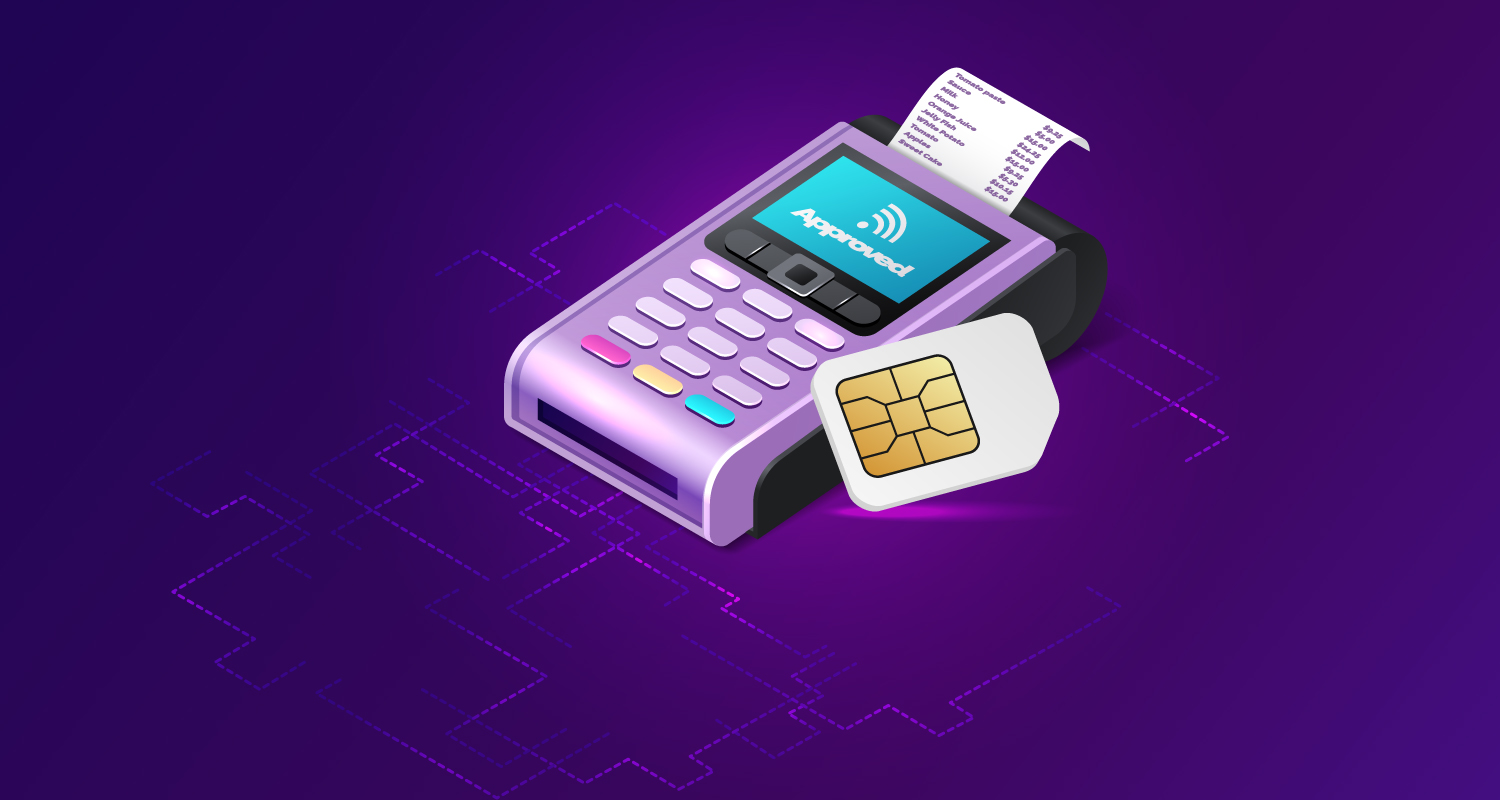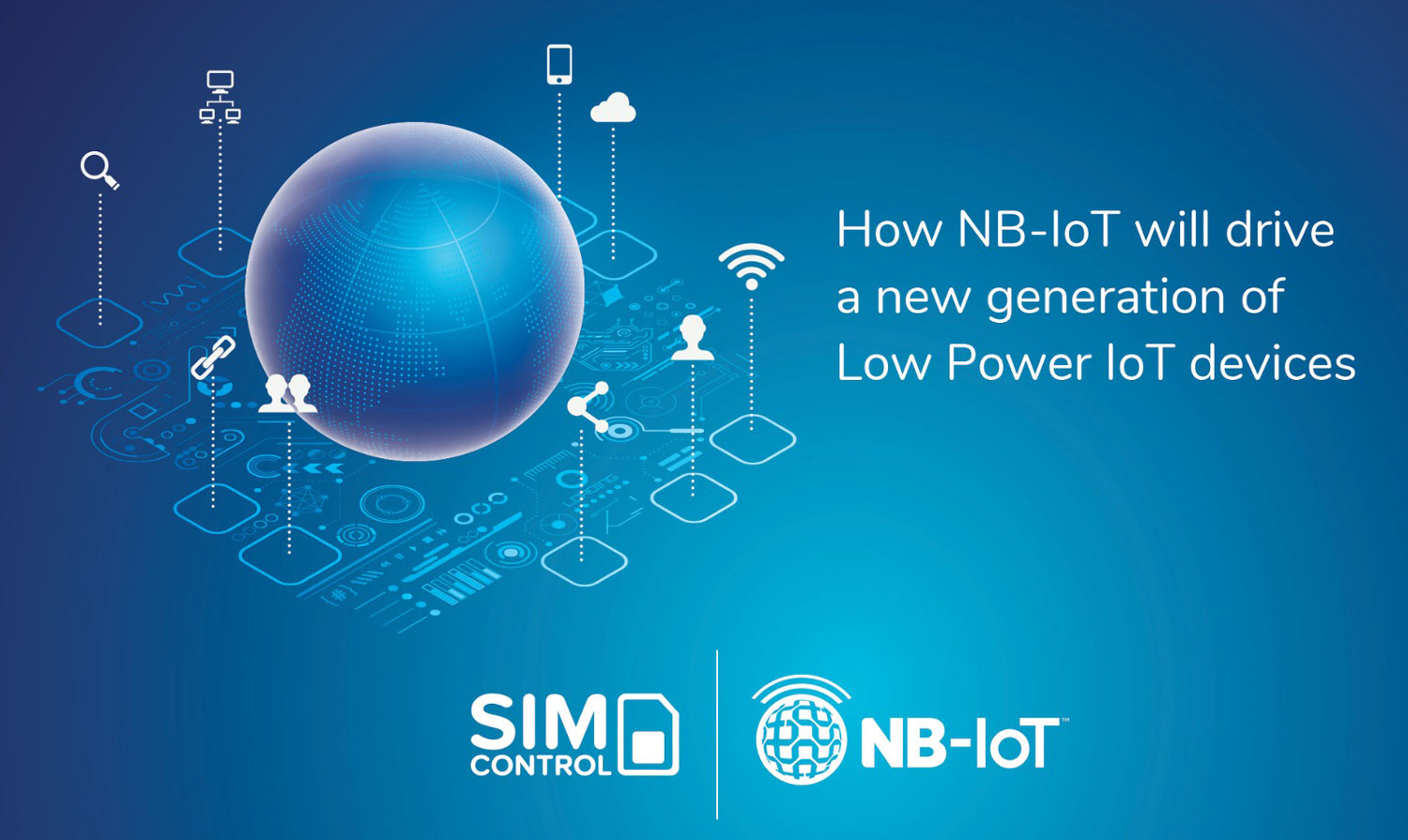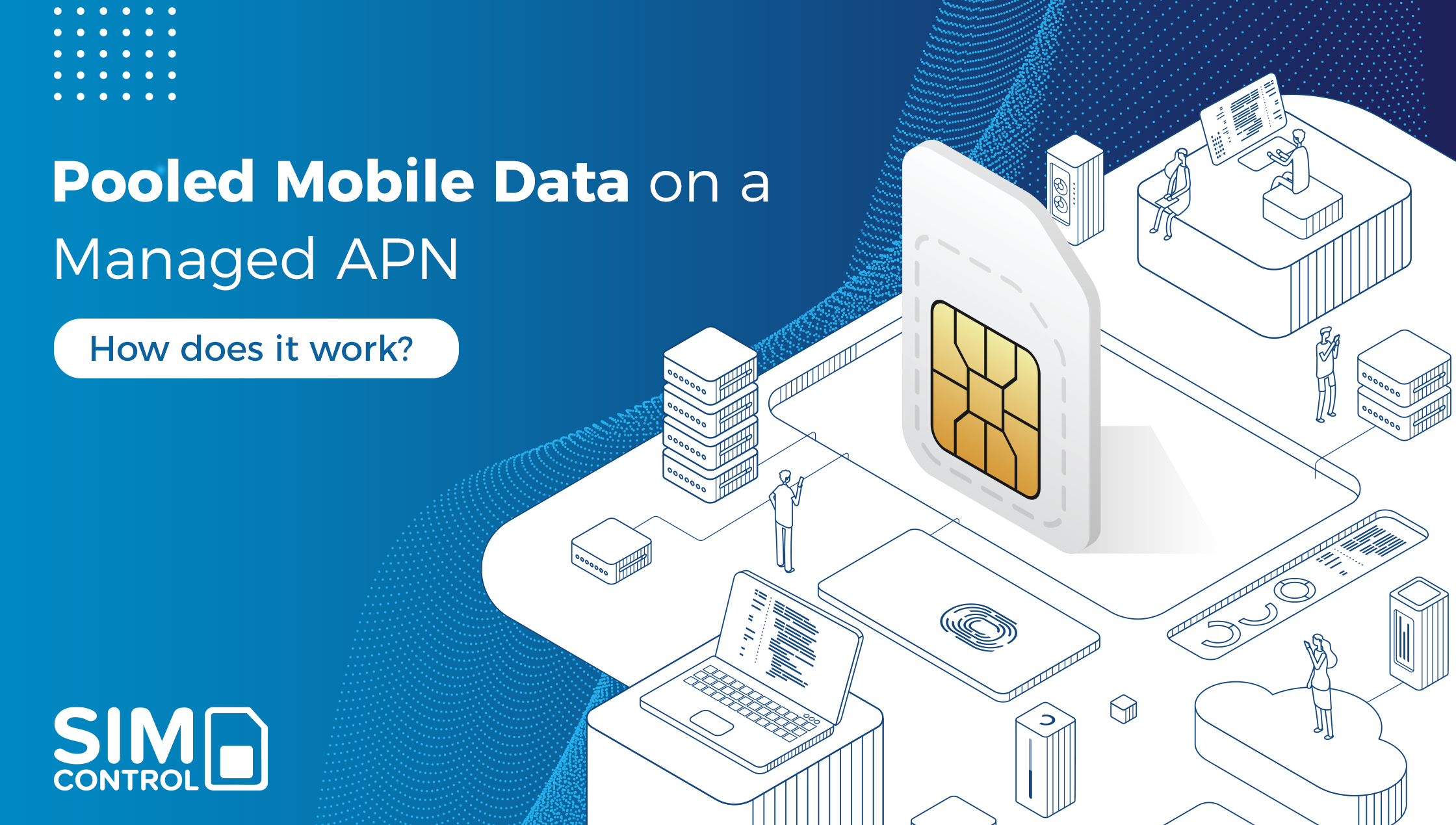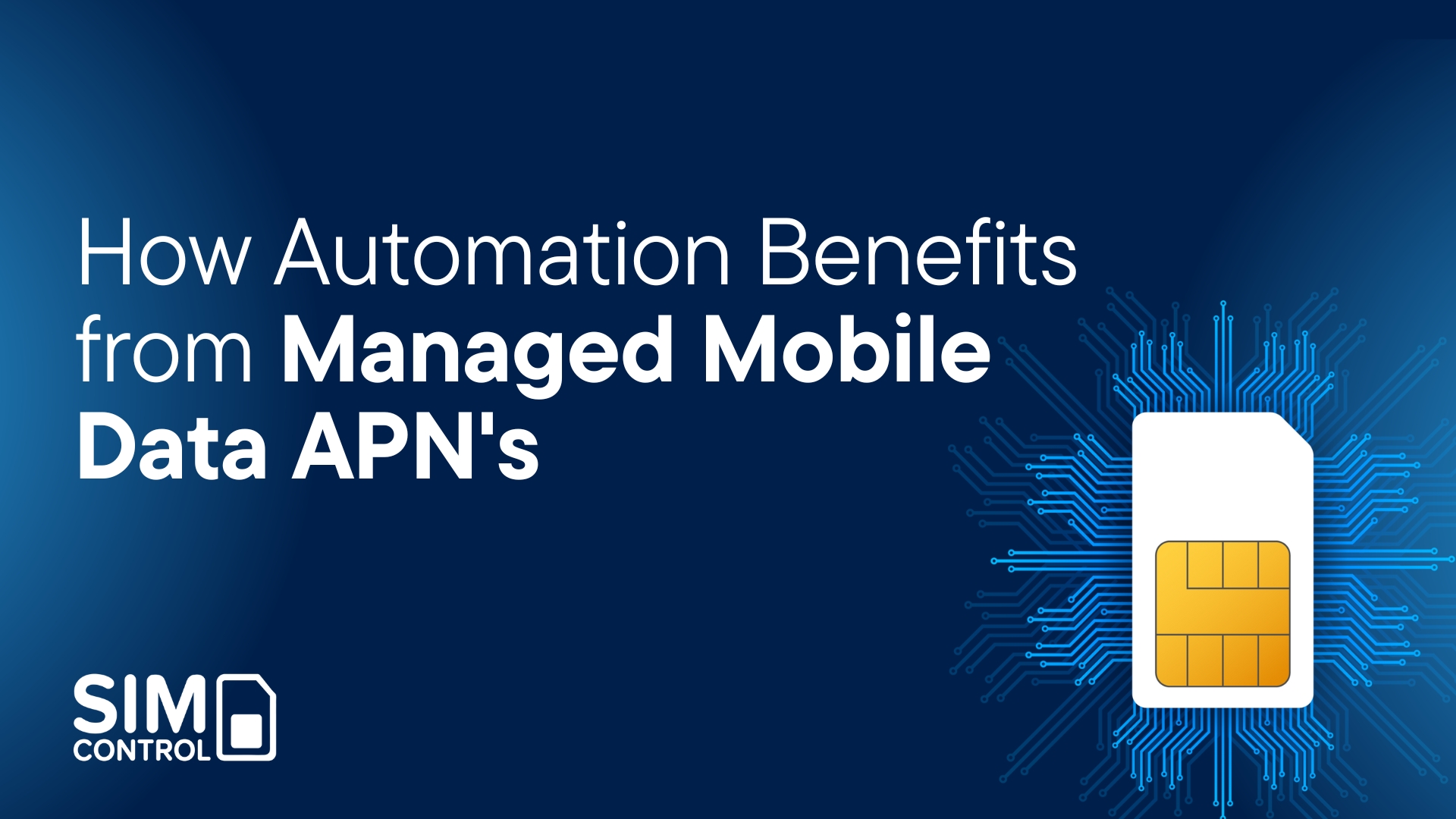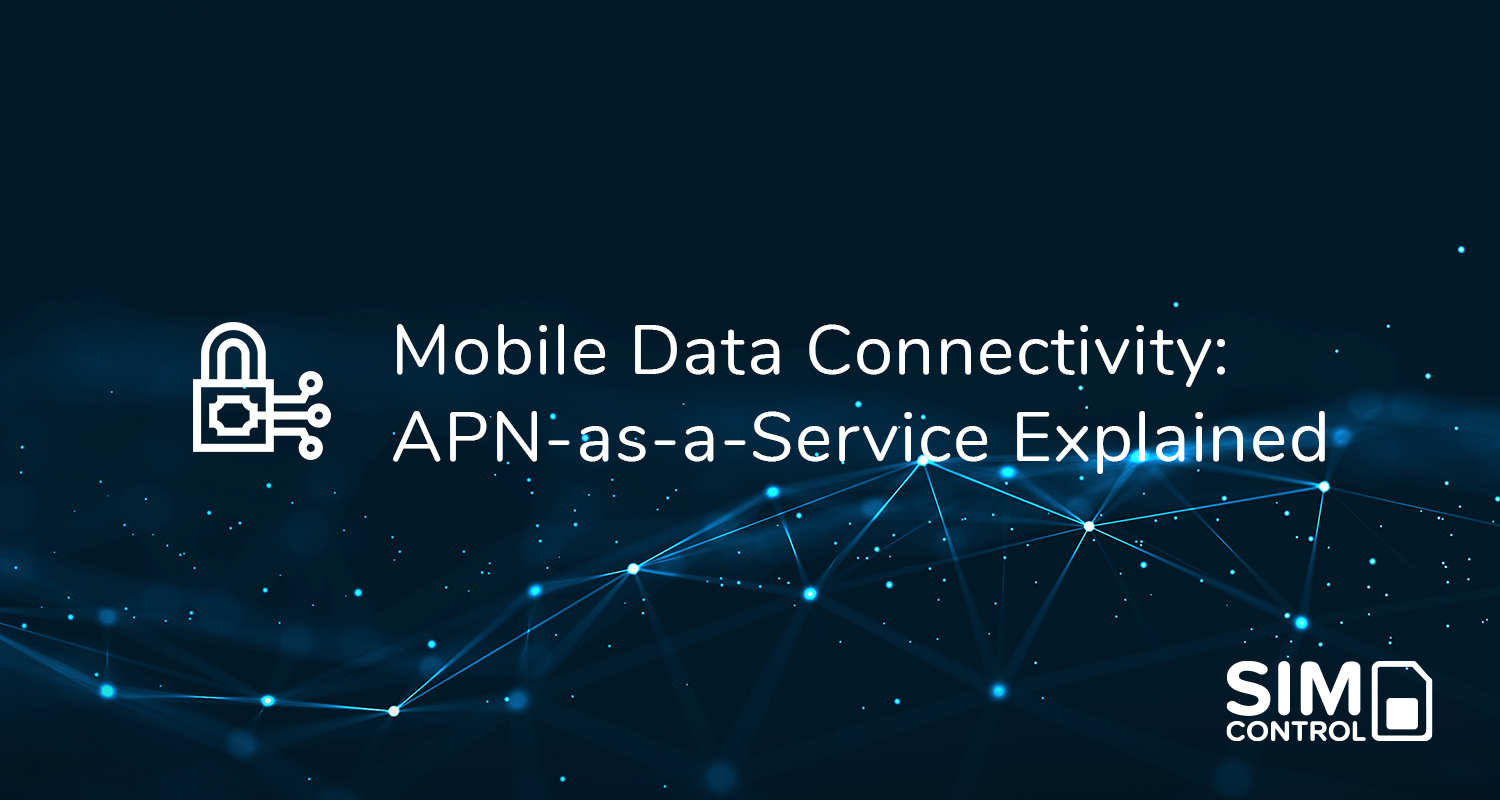This informative article was originally published in Techcentral.
The fintech industry has experienced remarkable advancements in recent years, transforming the delivery of financial services. Many retail-focused fintech innovations are dependent on secure and reliable IoT connectivity.
In this article, we delve into the role of connected devices, the significance of mobile device connectivity, and the options around managed private APNs.
Mobile devices in fintech
Many fintech solutions rely on connected devices deployed to various locations. These could be mobile payment terminals, POS devices, voucher vending terminals, hand-held PDAs, biometric authentication, kiosks, or smartphone-based deployments. Whether fixed or mobile, most device deployments rely on mobile network data connectivity (2G/3G/LTE/NB-IoT) for reliable transactioning.
Managers who need to manage these large deployments of data SIM fleets need the flexibility, tooling and security to effectively manage SIMs from several mobile networks, or SIMs that are able to roam and connect to multiple local mobile networks. They also need deep real-time insight into their entire connected SIM fleet performance to proactively pick up connectivity issues and troubleshoot individual problems. They want the assurance that there will be no runaway data consumption, out-of-bundle charges, or bill shock outside of normal operational costs and require detailed reporting across SIMs from various mobile networks to better plan and manage device deployments. Metrics, data and alerts must also be available via API.
Managed Private APN: Enabling Reliable and Secure IoT Connectivity
Depending on the type of device and how security and encryption are handled, fintech devices require either Private APN or Public APN mobile connectivity. APN (Access Point Name) is the network layer used within mobile data networks that determines the routing mobile data takes to reach its intended destinations.
Many fintech devices, especially those that encrypt data on the device itself, can work reliably and securely on the Public APN. Where device-to-server data connectivity needs to be routed in a dedicated and custom route, or where the traffic from the device needs to be passed through a custom firewall or VPN to only allow data to specific destinations or URLs, then a Managed Private APN is required to ensure customized and secure IoT connectivity.
Pooling APN data across multiple mobile networks is another benefit of Managed Private APN's, which removes the need to commit to APN data with each mobile network independently and allows for easier risk mitigation by being able to use SIMs from more than one mobile network.
Advanced Networking and Secure Connections: Empowering Fintech Innovation
Especially for devices that run on Android-based platforms or on smart devices, mobile traffic needs to be effectively managed on the network level. Only specific app data should be allowed to pass through, and all other apps and data traffic effectively blocked before it travels to destination servers or breaks out to the internet.
Managed APNs offer advanced networking capabilities, traffic segmentation, and load balancing. These features ensure that critical fintech services receive the necessary network resources for smooth operations.
Furthermore, end-to-end secure connectivity is of paramount importance for some fintech devices, where unencrypted sensitive financial data is being transmitted. Managed APNs enable private networking and VPN technologies to establish secure tunnels between devices and backend systems, mitigating the risk of data breaches and unauthorized access. This robust security framework instills confidence among users and financial institutions alike, encouraging greater adoption of fintech solutions.
Conclusion
The potential of IoT to revolutionize the fintech industry is vast, reshaping the delivery, experience, and security of financial services. Leveraging multi-network mobile device connectivity, managed private APNs, and advanced networking capabilities allows financial institutions to achieve efficiency, customer-centric services, and data-driven insights.
The integration of SIM management services such as SIMcontrol and Managed APN solutions addresses the challenges in procuring & managing SIM cards, optimising data usage, and ensuring secure and robust connectivity.
As the fintech landscape continues to evolve, embracing the transformative power of IoT devices becomes essential for organisations to remain ahead, deliver innovative solutions, and enhance the customer experience in the digital era.
For more information or to speak to a fintech device connectivity specialist, visit SIMcontol.
